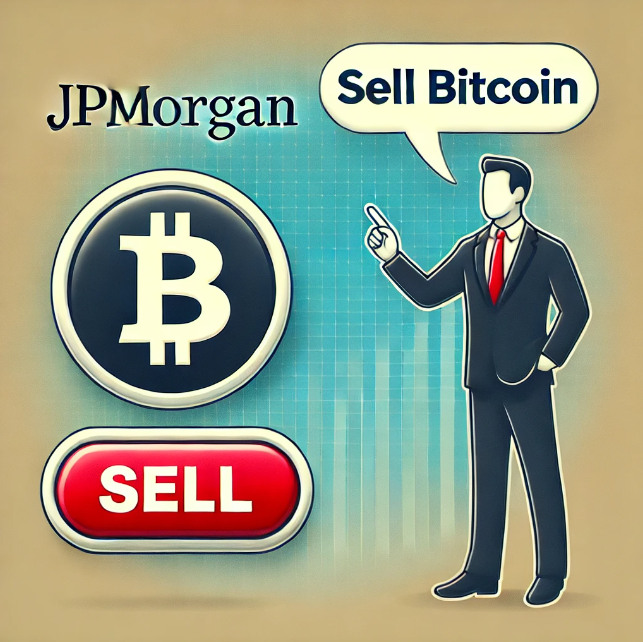JPMorgan just threw shade at Bitcoin, and Tether’s CEO isn’t having it. As the banking giant warns of a potential crypto sell-off, Paolo Ardoino fires back, calling them ‘salty’ for not owning Bitcoin. Is this a real financial concern or just another case of traditional banks clashing with crypto?
The CEO of Tether, Paolo Ardoino, has publicly criticized JPMorgan’s recent recommendation to sell Bitcoin, suggesting that the banking giant is envious of those who hold the leading cryptocurrency. The remarks reflect the ongoing tension between traditional finance and digital assets, highlighting the divide between legacy banking institutions and the growing influence of stablecoins in the crypto market.
JPMorgan’s Bitcoin Concerns and Tether’s Response
JPMorgan’s latest analysis suggests that Tether may need to sell off assets, including its $8 billion Bitcoin holdings, to comply with new stablecoin regulations under consideration in the U.S. The proposed STABLE bill, whose discussion draft was released last week, could classify up to 34% of Tether’s reserves as non-compliant under its guidelines.
In response, Ardoino took to X claiming that JPMorgan’s analysts are “salty” because they don’t own Bitcoin”.

The response was a direct challenge to JPMorgan’s bearish stance, as Tether continues to maintain its position as the largest stablecoin issuer, with billions of dollars in Bitcoin reserves supporting its broader ecosystem.
Tether’s Bitcoin Holdings: A Strength or a Liability?
Tether has amassed a significant Bitcoin reserve, currently valued at $8 billion. However, critics argue that Tether’s Bitcoin does not directly back USDT and is instead part of its collateralized reserves used to strengthen the company’s financial standing. This raises concerns about how potential regulatory shifts could impact Tether’s ability to maintain liquidity and compliance.
JPMorgan’s warning that Tether might need to offload its Bitcoin holdings stems from the possibility that new U.S. regulations could force stablecoin issuers to adhere to stricter reserve requirements. If such regulations were enforced, it could lead to increased market volatility, as large-scale liquidations of Bitcoin could put downward pressure on the asset’s price.
Regulatory Scrutiny and the Cantor Fitzgerald Connection
Tether has long faced intense regulatory scrutiny in the U.S., with questions surrounding its reserves, transparency, and financial backing. However, its ties to Cantor Fitzgerald CEO Howard Lutnick may prove beneficial in navigating potential regulatory hurdles.
Lutnick, a prominent figure in traditional finance, was recently nominated to be the next U.S. Commerce Secretary. During his confirmation hearing, his financial connection to Tether was disclosed, including a convertible bond investment in the company. While Lutnick denied any potential conflicts of interest, his role in the government could offer a significant advantage for Tether’s regulatory positioning.
Given these connections, some analysts argue that Tether is unlikely to face immediate pressure to liquidate its Bitcoin reserves, despite JPMorgan’s assertions.
Traditional Finance vs. Crypto: The Bigger Picture
This dispute highlights the broader battle between traditional finance and the crypto sector. Legacy financial institutions like JPMorgan have historically been skeptical of digital assets, often issuing warnings about Bitcoin’s volatility and regulatory risks. Meanwhile, crypto-native firms such as Tether continue to expand their influence, positioning themselves as essential players in the evolving digital financial landscape.
As regulatory frameworks develop, the question remains: Will stablecoin issuers like Tether be forced to comply with new banking-like restrictions, or will their existing financial structures remain intact?
Regardless of the outcome, the latest clash between JPMorgan and Tether underscores the ongoing struggle for dominance in the future of digital finance. As Bitcoin adoption grows and regulators weigh new rules, Tether’s future—and its massive Bitcoin holdings—could play a pivotal role in shaping the next phase of the crypto market.





